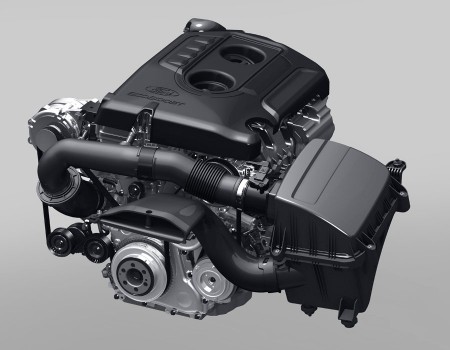It’s not just about making the cars lighter or the engines more efficient, as Ford told us that it’s now using materials for the inside of its cars that come from sustainable resources.
To that end, the company is exploring reusing material from all sorts of places. The waste from denim jeans is being used under carpets in cars. Plastic bottles are being recycled and used in the interior, as is a foam material developed from soy plant oil.
“By the year 2013, the demand for vehicles will grow from 750 million to two billion,” Viera said. “We’re going to start running out of resources [and], a big part of what we do is think about recycling.”
As for the future, Ford said today that it is committed to looking at multiple engine types for its vehicles.
“We’re a company that produces vehicles that people can afford,” said John Viera. “We want to produce global vehicles that run on different types of fuel and we want great fuel efficiency on each one of those.”
As the man in charge for Ford’s environmental matters, he spoke about electricity and hydrogen, citing that for each of these technologies, it’s not just a matter of Ford working on bringing the engines to consumers, but for local utilities to make them a possibility in the long term.
“Hydrogen costs about a million dollars for one pump,” Viera said. “Electric vehicles are expensive because the battery technology is very expensive: until we bring down the cost, it won’t be sold in high volumes.
“It’s not just about providing electric vehicles: the utility companies need to be ready too.”
In Australia, Ford has yet to bring its electric technologies to our population. While three technologies exist – hybrid vehicle, hybrid vehicles with a plug, and pure plug-based electric vehicles – it’s the hybrid car like the Toyota Prius that Ford sees becoming the norm by 2020.
For the moment, Ford’s focus for future vehicles seems to rest squarely in the environment, specifically in biofuel.
Speaking to journalists this morning, the head of Ford’s environmental department said that “biofuels are a key part” of the Ford sustainability strategy.
“Liquid fuels hold a lot of energy,” said Viera. “If we can turn plants into ethanol, we’ll have a very sustainable fuel.”
For now, though, the company is looking ahead to its EcoBoost technology, which is arriving in the Falcon series this month.







One Comment